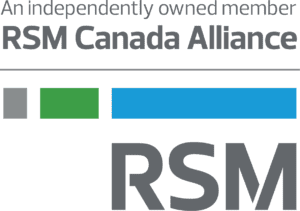RESOURCE
Home office and permanent establishment for non-resident corporations
TAX ALERT | August 01, 2022
Authored by RSM Canada
Executive summary
Home office(s) in Canada may constitute a permanent establishment of the non-resident corporation in Canada if the employer requires the employees to work from home
Non-resident corporations may be subject to tax in Canada if they carry on business in Canada. Most of Canada’s tax treaties with its major trading partners require the higher-threshold presence of a permanent establishment in Canada to be satisfied before a non-resident is subject to Canadian tax.
A permanent establishment is generally a fixed place of business through which the business of an enterprise is wholly or partly carried on. In general, a permanent establishment requires the existence of three conditions:
1. A place of business, whether owned or rented, so long as the enterprise has the legal right to use the place of business,
2. The place of business must have a degree of permanence and
3. The business must be carried on wholly or partly through the fixed place of business.
The Organisation for Economic Co-operation and Development (OECD) Model Tax Convention defines a permanent establishment as “a fixed place of business in which a business is wholly or partly carried on, including a place of management, a branch, or an office, a factory, a workshop, a mine and etc.” Further, a person acting in Canada on behalf of a non-resident, other than an agent of an independent status, can be deemed to have a permanent establishment in Canada if such person has, and habitually exercises in Canada, an authority to conclude contracts in the name of the non-resident. Permanent establishment could also arise if the employee or agent has a stock of merchandise owned by the corporation from which they regularly fill orders received.
Change in hiring policies during the COVID-19 period
During the COVID-19 pandemic, some foreign corporations may have hired senior management employees in Canada who decided to work from their home offices in Canada. Assuming these employees do not habitually exercise the authority to conclude contracts in the name of the non-resident, would their home offices constitute a fixed place of business in Canada, and therefore, a permanent establishment in Canada?
Whether a home office constitutes a permanent establishment?
Whether a home office constitutes a permanent establishment of a non-resident corporation is largely dependent on whether the home office should be considered a place of business at the disposal of the non-resident corporation. In general, the ‘right of disposal’ means that the non-resident must have a right to use the space as the non-resident’s place of business and the mere presence of space is insufficient to conclude the determination of a permanent establishment.
Generally, the home offices of the Canadian-resident employees are likely not considered permanent establishments if they are not referred to as the non-resident corporation’s Canadian address on their website, business cards or any advertisement. Further, to the extent the non-resident corporation does not bear home office expenses, does not stipulate what the home offices may contain and Canadian employees do not have access to each other’s homes to perform their official functions, the home offices may not be considered the permanent establishment of the non-resident corporation.
Despite these conditions, the OECD provides that a home office may still constitute a permanent establishment if used on a continuous basis for carrying on business activities for a company and it is clear from the facts and circumstances that the company has required the individual to use that location to carry on the company’s business (e.g., by not providing an office to an employee in circumstances where the nature of the employment clearly requires an office). Alternatively, if the carrying of business activities at the home of an individual (under most circumstances, employee) is intermittent or incidental with interruptions, the home office is not likely to be considered to be a location at the disposal of the enterprise.
The OECD has also provided a few examples to illustrate situations where a home office is considered to be a permanent establishment of an enterprise. For example, if a non-resident consultant uses a home office in another country, in which she carries on most of her business activities from an office set up in her home, the home office could be considered a location at the disposal of the employer. On the other hand, a cross-frontier worker who completes most of her work at home in one country rather than in the office made available to her in another country would likely not be considered a permanent establishment, because the employer did not require that the home be used for its business activities.
That is, if a non-resident corporation hires employees in Canada and requires them to work from their home office(s) in Canada, the home offices may constitute a permanent establishment of the non-resident corporation in Canada, resulting in tax obligations in Canada.
Some practical examples
Non-resident corporations may not be considered to have a permanent establishment in Canada in the following situations:
1. Non-resident corporations do not bear any costs relating to the Canadian employees’ home offices in Canada;
2. Non-resident corporations do not use the Canadian employees’ home offices for any advertisement, business address, or on their website and,
3. Non-resident corporations provide an office space or hoteling work arrangements in the non-resident corporation’s principal jurisdiction (e.g., the US) to conduct their official duties. The employees may choose to work from their home offices in Canada.
Corporations to review their employee’s locations and employment contracts to avoid creating conflicting taxable positions
The CRA in 2020 announced certain relief from pandemic-induced permanent establishments at the national level. However, there has been no further similar administrative relief related to the pandemic and instead, significant financial investment and measures have been introduced to bolster the CRA’s audit and enforcement powers. Non-resident corporations should review any permanent establishment exposures in light of lifting travel restrictions and increasingly mobile workforces.
Questions?
Contact your trusted Stark & Marsh Advisor or an office close to you.
This article was written by Nakul Kohli and originally appeared on 2022-08-01 RSM Canada, and is available online at https://rsmcanada.com/insights/tax-alerts/2022/home-office-and-permanent-establishment-for-non-resident-corporations.html.
The information contained herein is general in nature and based on authorities that are subject to change. RSM Canada guarantees neither the accuracy nor completeness of any information and is not responsible for any errors or omissions, or for results obtained by others as a result of reliance upon such information. RSM Canada assumes no obligation to inform the reader of any changes in tax laws or other factors that could affect information contained herein. This publication does not, and is not intended to, provide legal, tax or accounting advice, and readers should consult their tax advisors concerning the application of tax laws to their particular situations. This analysis is not tax advice and is not intended or written to be used, and cannot be used, for purposes of avoiding tax penalties that may be imposed on any taxpayer.
RSM Canada Alliance provides its members with access to resources of RSM Canada Operations ULC, RSM Canada LLP and certain of their affiliates (“RSM Canada”). RSM Canada Alliance member firms are separate and independent businesses and legal entities that are responsible for their own acts and omissions, and each are separate and independent from RSM Canada. RSM Canada LLP is the Canadian member firm of RSM International, a global network of independent audit, tax and consulting firms. Members of RSM Canada Alliance have access to RSM International resources through RSM Canada but are not member firms of RSM International. Visit rsmcanada.com/aboutus for more information regarding RSM Canada and RSM International. The RSM trademark is used under license by RSM Canada. RSM Canada Alliance products and services are proprietary to RSM Canada.

Stark & Marsh CPA LLP is a proud member of RSM Canada Alliance, a premier affiliation of independent accounting and consulting firms across North America. RSM Canada Alliance provides our firm with access to resources of RSM, the leading provider of audit, tax and consulting services focused on the middle market. RSM Canada LLP is a licensed CPA firm and the Canadian member of RSM International, a global network of independent audit, tax and consulting firms with more than 43,000 people in over 120 countries.
Our membership in RSM Canada Alliance has elevated our capabilities in the marketplace, helping to differentiate our firm from the competition while allowing us to maintain our independence and entrepreneurial culture. We have access to a valuable peer network of like-sized firms as well as a broad range of tools, expertise, and technical resources.
For more information on how Stark & Marsh CPA LLP can assist you, please call us at 306-773-7285.
